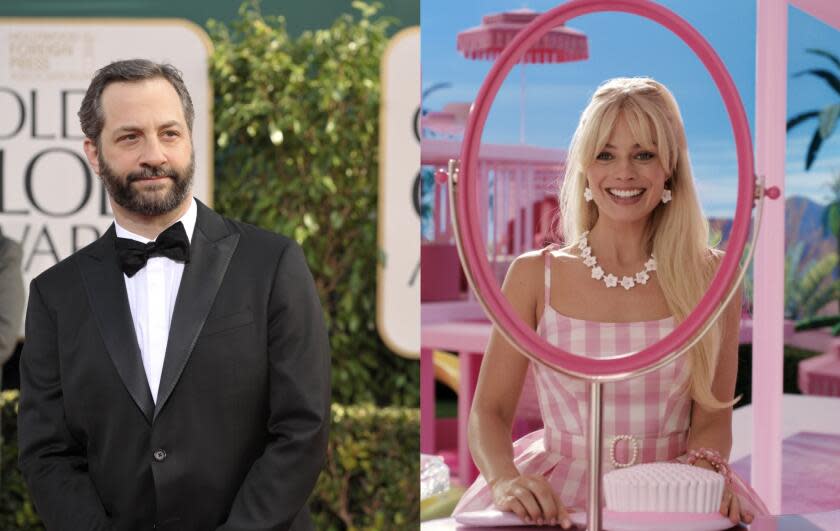Judd Apatow says putting 'Barbie' in the Oscars' adapted screenplay category is 'insulting'

Judd Apatow says nobody puts “Barbie” in the adapted screenplay corner.
Last week, Variety reported that Greta Gerwig’s megahit “Barbie” had been classified as an adapted screenplay by the writers branch executive committee of the Academy of Motion Picture Arts and Sciences. The film had been campaigning for original screenplay in the Oscars race.
“It’s insulting to the writers to say they were working off of existing material,” the “Superbad” director wrote on X (formerly Twitter) on Saturday. “There was no existing material or story. There was a clear box.”
Before “Barbie" hit theaters (and catapulted at the box office) in July, the Writers Guild of America labeled the screenplay as original, and it will remain in that category for the upcoming WGA Awards.
Read more: 'Barbie': Original? Adapted? Depends who you ask
The writers branch has taken its stance even though "Barbie" is not adapted from a book, play, video game or working with characters from a previous movie. Perhaps it's because Barbie has been around as a doll since Mattel launched her in 1959.
Yet 2014’s “The Lego Movie” also released a film based off of a toy, and the academy classified its screenplay as original.
The Times' Glenn Whipp countered that the academy decision could be because “Barbie” uses broad character traits associated with the characters, whereas “The Lego Movie” had no such issue, because Lego aren't really characters — they're interlocking plastic bricks.
Previous Oscar-nominated films based off of preexisting characters, including “Toy Story 3” and “Borat 2,” were also categorized as adapted screenplays.
The Oscar nominees will be announced on Jan. 23. Had Gerwig and Noah Baumbach's “Barbie” been recognized as an original screenplay, it probably would have competed against “Past Lives” and “The Holdovers,” each nominated for multiple Golden Globes. Now "Barbie" is up against powerhouse contenders including “Killers of the Flower Moon,” “Poor Things” and its box-office bestie, “Oppenheimer.”
The Times' columnist Glenn Whipp contributed to this report.
This story originally appeared in Los Angeles Times.
